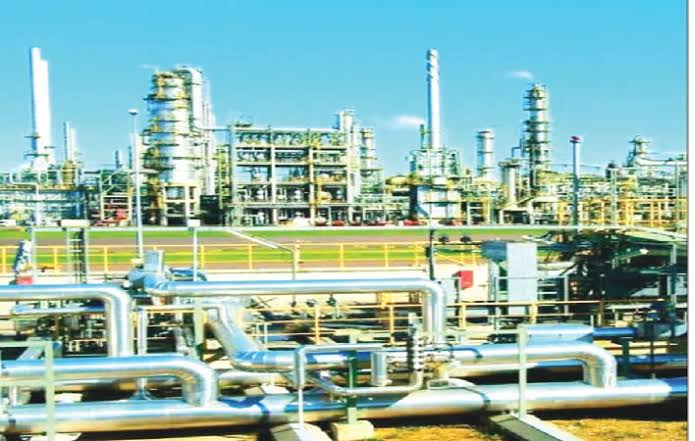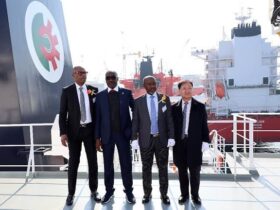Fluenta, a global leader in ultrasonic sensing technology for measurement of flare gas, says it has completed installation of 18 ultrasonic flare gas meters on large pipelines around the Dangote Refinery Plant in Nigeria.
Mr Radek Kurkowski, a Director at Fluenta, said on Thursday that it spent more than four months working with its exclusive Nigerian representative, Daptem Engineering, and the Dangote project team to deliver a workable, accurate and reliable flare measurement solution.
Dangote Refinery, the world’s largest single-train refinery, inaugurated in May 2023, has the capacity of refining 650,000 barrels of oil per day, enough to meet Nigeria’s daily fuel supply requirements, with a daily surplus of 38 million litres of refined products, already earmarked for export.
Kurkowski, in a statement, said that the team implemented a multitude of innovative, bespoke solutions, each considered on a case-by-case basis, to ensure accuracy of the system.
“Under current Nigerian law, companies refining oil and gas must pay a ‘tax’ for flared gas, to encourage an overall reduction in flaring, underlining the importance of Fluenta’s accurate, trustworthy flare measurement and management.
“Flare gas measurement and control is vital to ensure compliance with environmental regulations and to help identify potential safety hazards.
“This is especially true at a plant on this never-before-seen scale and with the world’s largest flare pipe.
“Delivering this solution meant some close work with our local partner and the client project team, and we are delighted with the end result – which will support bringing energy security to Nigeria and the wider Africa region.
“Our team used a range of state-of-the-art technology, adapted meter software and special pipe gaskets and ball valves to deliver the pipe flare gas measurement solution,” he said.
He said Fluenta’s work stood as testament to the power of innovation, creative teamwork and a desire to always meet the client’s needs, adding that it was proud to support the domestic security of energy supply in Nigeria.
According to him, Fluenta has deep experience of working in Africa. In 2017, the company was approached by an International Oil Company (IOC) working in Nigeria, who was looking for a reliable flare measurement solution.
He said it developed bespoke solutions in response to the IOC’s requirements, which were installed in 2019 and since then, the IOC had ordered an additional 32 Fluenta flare measurement meters.
He said Fluenta would be speaking further on the challenges of combustion efficiency and industry challenges to track methane emissions from flaring at Nigeria Hydrocarbon Measurement Conference (NiHMEC), taking place in Lagos, from Oct. 4 to 5, 2023.
He further said that Nigerian authorities were leading the charge in the control and regulation of flaring gas, looking towards eliminating the need for routine flaring over the next few years.
However, he said, a key component in that challenge was accurate measurement.
Nigeria is positioning itself as a world-leader when it comes to reducing its emissions, and flaring – the controlled burning or combustion of excess or waste gases that cannot be processed or captured for productive use.
This is a safety and environmental practice employed in the petroleum industry to prevent release of potentially harmful or combustible gases into the atmosphere.
Flare measurement in a refinery is essential, from a regulatory and environmental law compliance perspective, and for accurate emissions monitoring. (NAN)











Leave a Reply